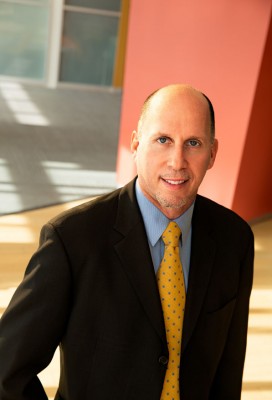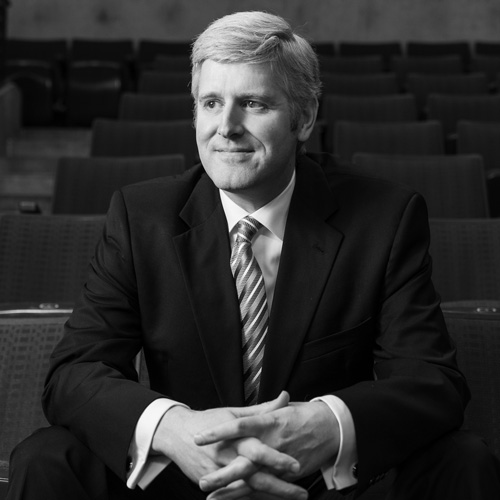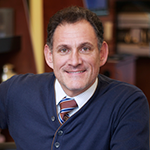When you’re Oprah Winfrey, you can claim the highest-rated talk show on TV and people liken your endorsement to a Midas touch. You might think a new TV network with your name on it is a shoe-in because start-ups that have appeared on The Oprah Winfrey Show have experienced record sales in as little as a month, but the road to success takes anywhere from 5 to 10 years for a network—even under the influence of the Oprah Effect.
Erik Logan and Sheri Salata, leaders from Harpo Studios who understood Winfrey and her vision, captained the turnaround of the Oprah Winfrey Network (OWN). Named presidents in July 2011, they set out to chart a new course for meeting those expectations. The duo began by getting the creative filter correct. “The network had a very earnest tone its first year,” says Neal Kirsch, COO and CFO of OWN. “And while Oprah is about empowerment, that message doesn’t have to be dour. At some point, people want to be entertained.”

COO & CFO
Company: Oprah Winfrey Network
Location: Los Angeles, CA
Career Advice: “Don’t be afraid to raise your hand when an opportunity presents itself.”
When Kirsch came to OWN in the fall of 2011 as interim CFO, he had to face some facts: After initially investing $200 million to launch the network, Discovery Communications had committed an additional $100 million in pursuit of an eventual ROI. However, not all programming was resonating with audiences, and the network’s star, Winfrey herself, was tied up with the completion of The Oprah Winfrey Show until 2012, when her new program, Oprah’s Next Chapter, was scheduled to premiere. Despite those obstacles, Kirsch and the executive team saw a brighter future for OWN.
“There was a point where I was doing long-range plans, and you could see we’d continue to lose for a while,” says Kirsch of the half year between mid-2011 and 2012, during which OWN dropped in cable ratings before showing some resilience. “But we could also see a point where it was going to turn.” Before joining OWN, Kirsch had served as CFO for 14 Discovery networks since 2003. With that background, the first place he aimed to change expectations was the balance sheet. Getting the cost structure right was essential in determining a winning lineup on the creative side. When Kirsch began analyzing OWN’s programming budgets and ad revenue, “Some things just sort of jumped off the page,” he says. It was clear that returns were not justifying investments, and even though Oprah’s network targeted a new demographic for Discovery, in the world of unscripted TV, says Kirsch, there are a lot of commonalities—price being one of them.
Once it began building a solid base of uplifting shows within budget, OWN still had to deal with Winfrey’s limited availability while her daytime devotees were captive to the final season of her syndicated talk show. In the meantime, the network needed some original, Oprah-free hits. Logan and Salata began to develop Super Soul Sunday and Oprah’s Lifeclass—the two projects Winfrey worked on while finishing The Oprah Winfrey Show. One title that survived the initial programming purge was Welcome to Sweetie Pie’s, a reality series that got the green light before Kirsch came aboard and a hit with African American women. Providing insight for the network, the series was a clue to the type of content viewers would respond to. “It’s a fun show with heart,” says Kirsch. And while his first instinct as a financial adviser was to champion more content with the Sweetie Pie flavor—“you find ways to give your audience more of what they want as opposed to taking a complete risk”—the network ordered 10 episodes of Iyanla: Fix My Life on the belief that Oprah Winfrey Show-regular Iyanla Vanzant could stay true to Winfrey’s self-improvement style while bringing an encouraging tone. That, and the fact that the network had air space that needed filling and didn’t have time to green-light six months of production after a successful pilot. “You have to find a balance,” Kirsch says of the risk, “and that show was an instant hit.”
OWN was still tweaking the programming mix as the network celebrated its first birthday in 2012. By the fall, it found a staid partner in Tyler Perry. Winfrey’s relationship with the writer-actor-director goes back to the days before he was a household name. Citing Winfrey as his influence, Perry appeared on The Oprah Winfrey Show in 2006. Talk of producing a series for OWN quickly turned into a partnership and plans to make the network Perry’s home. Being the parent company of such fact-based favorites as Military Channel and Animal Planet, Discovery had made a portfolio of networks successful sans scripted TV. But the leaders at OWN saw great potential in Perry’s work. “If you look in the cable marketplace, there’s not much scripted programming targeting African Americans,” Kirsch says. Perry brought a loyal viewership and, chief in Kirsch’s mind, a track record that would mitigate the bigger investment a scripted series demands. With three top-five, weeknight series to show little more than two years later—The Haves and The Have Nots, Love Thy Neighbor, and For Better or Worse—it seems Perry is fitting in well.
Following a double-digit growth year, OWN kicked off 2013 by shaking the last vestiges of its rocky start. Winfrey’s interview with Lance Armstrong, following the rescinding of his Tour de France titles, was one of the network’s most-watched events, and was broadcast in multiple languages to 28 million viewers in more than 100 countries. “That resonated because it was the first international broadcast for OWN,” Kirsch says. “It gave people in the States a sense of how big we could be.”
According to ratings, OWN’s size at the close of 2013 earned it the top spot on Wednesday night TV among it’s female African American viewers and second place on Tuesday nights. Earning 21 percent more viewers in 2013 and growing its audience of African American women by 75 percent suggests that “the ship,” as Kirsch sometimes calls OWN, has turned. “On a TV network, once you change directions, it takes eight to nine months before you start to see a difference,” he says. “To look at our losses from 2011, the results of 2012 and ’13, and where we are in the cable landscape today is nothing short of remarkable. It’s one of the biggest turnarounds in cable history.”
Mixing a little risk with surefire reward has proven fruitful for OWN as it continues to carve out its slice of the market. The network announced in February that it would continue its scripted programming slate with a biopic on Darlene Love. Though continuing to find its way, Kirsch says the network has learned some valuable lessons and can look back on its debut year as something of a mulligan. But with daytime’s diva back on screen and a long runway ahead of it, OWN is on track to settle well into its own.

